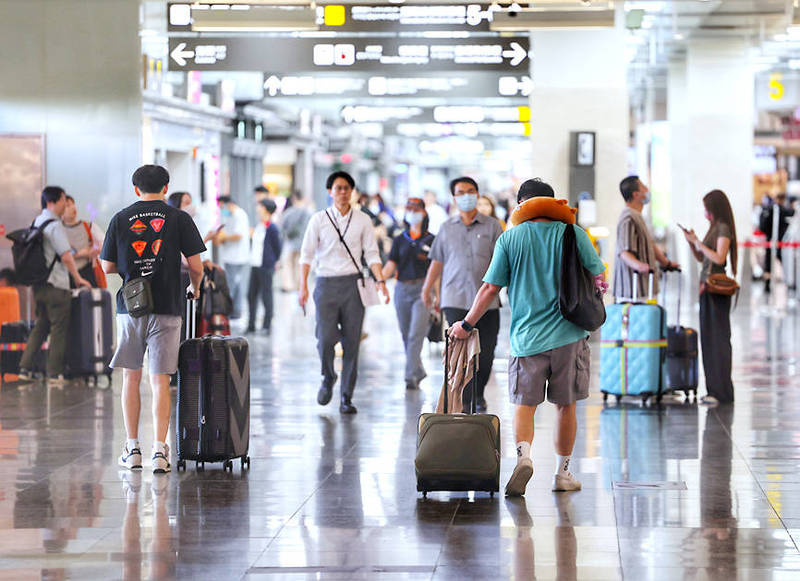《TAIPEI TIMES》 Airport voluntary illness screenings start
ARRIVALS FROM CHINA: No new cases of ‘M. pneumonia’ infection were reported by the voluntary screenings of passengers from China arriving at international airports
By Chung Li-huaand Jonathan Chin / Staff reporter, with staff writer
Voluntary screenings for respiratory illnesses for people traveling from China, including Hong Kong and Macau, have begun in response to a surge of pneumonic diseases, the Centers for Disease Control (CDC) said yesterday.
The measures enacted on Sunday were part of an effort to monitor seven types of concerning pneumonic diseases surging in China, including Mycoplasma pneumoniae infections, influenza and COVID-19, CDC Deputy Director-General Philip Lo (羅一鈞) told a news conference at the Executive Yuan in Taipei.
No new cases of M. pneumonia infection were reported by the voluntary screenings of passengers from China arriving at the international airports in Taipei, Taoyuan, Taichung and Kaohsiung, he said.
The global respiratory disease season appears to have arrived early this year and the M. pneumoniae bacteria are expected to spread, but no new pathogen has been detected, he said, citing the WHO.
M. pneumonia infection poses a heightened risk to children, while COVID-19 remains a danger to adults, Lo said.
Meanwhile, domestic monitoring showed that community spread of respiratory diseases is declining, with the most common types of infection being influenza, adenovirus and parainfluenza, he said.
Communal cases of COVID-19 and emergency department visits for M. pneumoniae infection are “in flux,” he said, adding that data from one medical center suggest that the latter illness accounted for less than 1 percent of all respiratory cases.
Taiwan has enough medicine to treat M. pneumoniae cases in children following increased imports beginning last month, while a generic version of the drug is scheduled for domestic mass production beginning this month, he said.
Separately, Chinese Nationalist Party (KMT) Legislator Lin Wei-chou (林為洲) said that more should be done to bolster a reported insufficient supply of drugs to treat the disease, including antibiotics and fever medicines to handle a potential pandemic.
Doctors reporting to the lawmaker’s office said that they cannot obtain any imported antibiotics, while domestically produced ones are being rationed, Lin told a news conference at the Legislative Yuan in Taipei.
The Food and Drug Administration should set up a hotline for hospitals to request direct shipments of antibiotics as it would other medical supplies during an emergency, he said.
Clinics and hospitals have had difficulty acquiring fever syrup to treat M. pneumoniae cases in children for the past two months, pharmacist Shen Tsai-ying (沈采穎) said.
The government’s medicine platform is not useful for medical practitioners, as information about generic substitutes has not increased supplies, Shen said.
The unavailability of fever syrups could endanger children under six months should the pneumonia situation worsen, she said.
新聞來源:TAIPEI TIMES





















